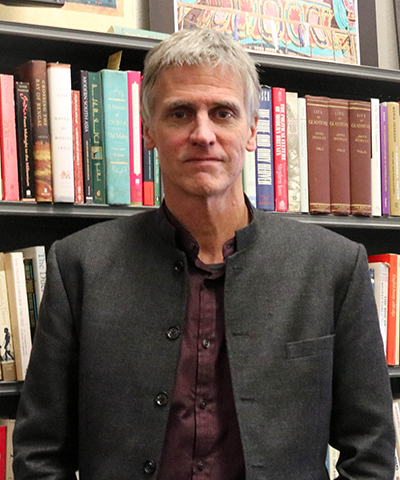Full Directory

Adams, Cary
Associate Professor of Art, Environment, and Emerging Practices
- Office Location
- Sage Art Center
- Telephone
- (585) 273-5994
- Web Address
- Website
Interests: Environmental Art and Humanities; New Media; Social Practice

Bakhmetyeva, Tanya
she/her/hers
Associate Professor of History
Associate Director, Humanities Center
Interests: Russian and Eastern European History, History of Catholicism, Gender

Berger, Karen
Associate Professor of Instruction, Earth and Environmental Sciences
- Office Location
- 227B Hutchison Hall
Interests: Teaching Interests: Human use of and impacts on energy and water resources; community-engaged learning; metrics of sustainability

Christensen, Peter H.
Arthur Satz Professor of the Humanities
Professor of Art and Art History
Senior Associate Dean, School of Arts and Sciences
Ani and Mark Gabrellian Director, Humanities Center
- Office Location
- 317M Lattimore Hall
- Telephone
- (585) 276-7173
- Web Address
- Website
Interests: 19th and 20th century architectural history, particularly Europe and North America’s international engagement with the Islamic world; history and aesthetics of infrastructure and industry; historicism; cartography and architecture; critical digital humanities

Curren, Randall
Professor of Philosophy
- Office Location
- 524 Lattimore Hall
Interests: Ethics; Moral Psychology; Philosophy of Education; Ancient Philosophy

Doughty, Kristin
Associate Professor of Anthropology
Director of Undergraduate Studies
- Office Location
- 437 Lattimore Hall
- Telephone
- (585) 275-5155
Interests: political and legal anthropology; politics of reconciliation; transitional justice; violence and conflict; memory; politics of energy; Africa; Rwanda

Downey, Jack
John Henry Newman Professor of Roman Catholic Studies
Associate Professor of Religion
Research Active
- Office Location
- 436 Rush Rhees Library
- Telephone
- (585) 275-5224
Interests: Contemporary Justice Movements; Liberation Theologies; North American religious history; Christianity; Buddhism: and Contemplative Traditions

FitzPatrick, William J.
Gideon Webster Burbank Professor of Intellectual and Moral Philosophy
Professor of Philosophy
- Office Location
- 525 Lattimore Hall
- Web Address
- Website
Interests: Metaethics; Normative Ethics; Bioethics; Philosophy of Biology

Fleischman, Thomas
Associate Professor of History
Director of Undergraduate Studies
- Office Location
- 369B Rush Rhees Library
- Telephone
- (585) 275-1140
Interests: German History; Environmental History; Animal History; Agricultural History; State Socialism; Cold War

Foster, Robert J.
Richard L. Turner Professor of Humanities
Professor of Anthropology and Visual and Cultural Studies
- Office Location
- Humanities Center, 212E Rush Rhees Library
- Telephone
- (585) 275-8741
- Web Address
- Website
Interests: Political economy; Material culture; Globalization ; Corporations ; Commercial media ; Mobile phones; Papua New Guinea, Melanesia

Gibson, Thomas P.
Professor of Anthropology
- Office Location
- 442 Lattimore Hall
- Telephone
- (585) 275-8739
- Web Address
- Website
Interests: Indigenous peoples of Southeast Asia; The anthropology of war and peace; Cosmology and state formation; Islamic states; Religious nationalism in the Indian Ocean; Colonialism and bureaucracy

Heuer, Christopher P.
Professor of Art History
- Office Location
- 521 Morey
- Telephone
- (585) 276-6052
Interests: Early Modern art and theory; the history of art history; replicative technologies; art and prehistory; environmental aesthetics; disaster studies; performance; the American civil rights movement

Mariner, Kathryn
Associate Professor of Anthropology
- Office Location
- 444 Lattimore Hall
- Telephone
- (585) 275-8734
Interests: intimacy and social inequality; politics of race, class and gender; temporality; kinship and adoption; care; social work; space and place; visual anthropology; United States

Nadir, Leila Christine
Associate Professor of Environmental Humanities
Director, Environmental Humanities Program
Interests: Anthropocene; Apocalypse; Environmental humanities; Memoir and creative nonfiction; Social practice art; Food studies; Theories of modernity/modernism; Cultural histories of colonialism and extractive capitalism; Immigration studies; Cold War geopolitics, especially related to Afghanistan; Politics of Race and Ethnicity; American Literature

Phillips, Kate, PhD
Associate Professor
- Office Location
- G-122J Rush Rhees Library

Steingröver, Reinhild
Professor of German
- Telephone
- (585) 274-1616
- Web Address
- Website

Weaver, Stewart A.
Franklin W. And Gladys I. Clark Professor of History
Professor of History
- Office Location
- 368 Rush Rhees Library
- Telephone
- (585) 275-9348
Interests: Modern British History; Himalayan History; Environmental History
